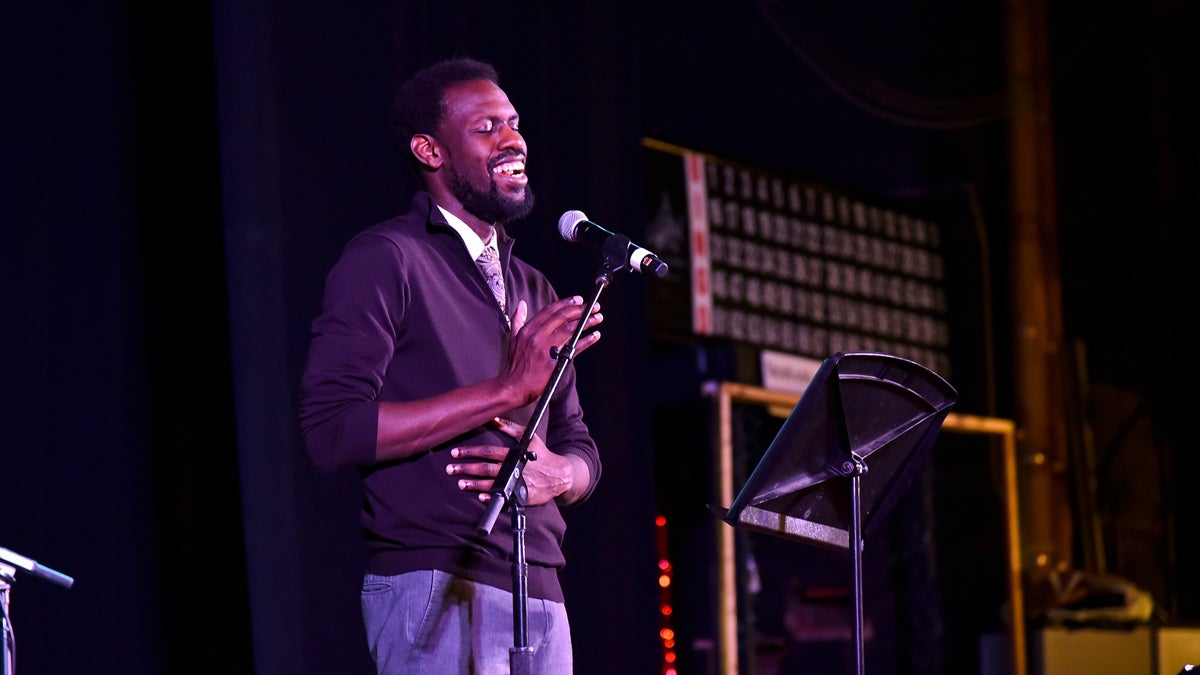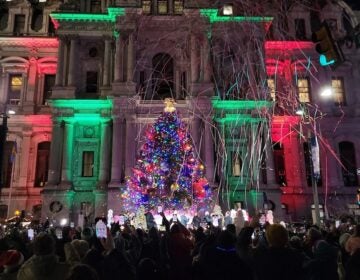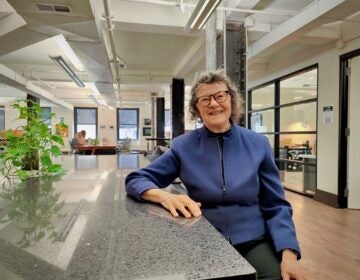Yiddish, African-American songs find a voice in one distinctive singer
Listen
Russell tours the US, playing art music and singing in a cantor's style. (Image courtesy of Mario Manzoni)
Anthony Russell says his “bubbe and zayde didn’t speak Yiddish.” Unbeknowst to them, their grandson definitely does.
Russell, who is black, tours the United States, playing music and singing in a cantor’s style. Originally an opera singer, he converted to Judaism as an adult, and became inspired by the music of Yiddish singer Sidor Belarsky.
At the Gershman Y’s Philadelphia Seder recently, Russell harmonized his original and adoptive cultures in a series of songs called “Convergence.”
Yiddish and African-American lullabies blend into bilingual renditions of “Don’t Nobody Know My Troubles but God” and “I’m a Poor Wayfaring Stranger.” He says his classical training influences his style, but his life experiences inform his art.
“If you’re a black guy, and you’re going to get up in front of a bunch of people and say ‘I’m going to sing in Yiddish,’ it’s a very conscious act, and it was very important that I not leave any parts of myself behind,” he said of his work.
“By performing these pieces, which are an amalgamation of early 20th century Jewish music and early 20th century African-American music, the idea is that I can not only embody these two histories that were going on simultaneously, but embody my own kind of expression that feels authentically African American and authentically Jewish.”
Jewish culture is part of everyday life for Russell. His husband is a rabbi.
“It does feel a little bit like a two-for-one special,” he said, joking about his marriage to Rabbi Michael Rothbaum. “You’re getting a rabbi and a cantor soloist!”
Russell and Rothbaum live in Oakland, Calif., where their kitchen showcases traditional Passover dishes.
“My husband always makes matzo brei on Pesach, which I love, because it’s one of the few foods made out of matzo that I actually enjoy eating.”
At the Philadelphia Seder, his voice complemented Jewish fusion cuisine.
“Our Seder never sounds as good as this,” Iris Greenstein remarked to her husband Dr. Jerry Greenstein. “His voice is just delicious!” was overheard in the hall.
Russell describes the reception of his music as “more profound than well received” with smaller, involved audiences.
“The history of the Jewish people is written in the music,” he said. “So when you decided to devote yourself to it, it does earn you an immense amount of regard.
The impact on audience members makes performances memorable.
“One time I performed at a Holocaust commemoration, and I sang a set of five songs that portrayed a single man from his childhood until he became a grandfather, singing to his grandchild,” he remembered.
“A gentleman came up to me after and said, ‘When I heard your voice singing in Yiddish …,” and he just started crying. It was a very intense moment for me, because the Yiddish had such a deep meaning for him, a meaning that I couldn’t even begin to guess at.
“But it was just the act of singing in Yiddish that made it such an important moment for him. I learned subsequently that he was a Holocaust survivor and that he had lost his mother and sister in the Holocaust.”
Russell says he’s grown into his art, taking memories from his grandmother’s kitchen and his mother’s piano playing with him wherever he goes.
“It’s no less weird being an opera singer. Because if you’re an African-American opera singer, you are repping the African-American voice. Which I think is why negro spirituals are such an important part of an African-American singer’s repertoire, because it’s a chance for them to express who they are and where they come from,” he said.
“So it’s kind of been the case my entire life, there’s always been a little dash. ‘Oh, he does this, and he does this — but doesn’t leave this part of himself behind,” he said. “It informs what I do.”
WHYY is your source for fact-based, in-depth journalism and information. As a nonprofit organization, we rely on financial support from readers like you. Please give today.




